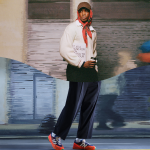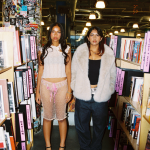Not many people thought that Fast Retailing, Tadashi Yanai's group, would become the world's largest fashion retailer by 2020, but now the goal is getting closer. Recently it has now surpassed H&M and has become the second biggest company in fast fashion. That's thanks to 2.3 trillion yen (19.4 billion euros) of sales in 2018. Among these, 1 trillion yen (840 million euro) was earned by Uniqlo, which is increasingly focused on success, as confirmed by sales growth of 14.5%, operating profits up 17% and new international openings (the store hit Milan last September).
If, according to analysts, Fast Retailing's actions have been increasing since 2015, largely thanks to its international expansion and to the improvement of logistics, it' s the opposite for H&M. The Scandinavian company has been in crisis over the last years due to overproduction (and unsold goods). Despite having reduced investment in the physical expansion of its brands to focus on digital strengthening and other moves to return to profitability and consumer contact, its revenue for 2018 stands at SEK 210 billion (approximately EUR 19.2 billion). This is not enough to make it the second largest fashion retailer in the world ( which it has been since 2015). The €167 million difference in net sales between H&M and Fast Retailing meant that H&M was retroceded.
The other groups in the ranking? Inditex is still in first place thanks to the 26.1 billion euros earned in 2018 by Zara, Massimo Dutti, Stradivarius, Oysho and its other brands. In fourth place there is Gap, with 16.5 billion. The result is slightly higher than the amount that in 2009 gave it the role of "emperor" of fast fashion worldwide, a small sign of the way the industry, despite the current problems, has grown in recent years.

























































